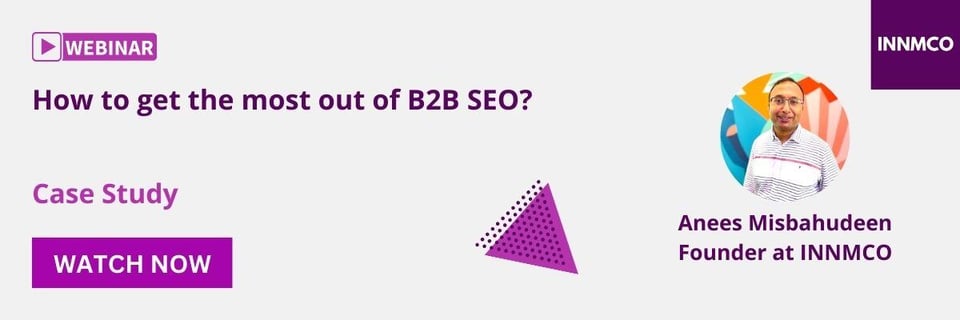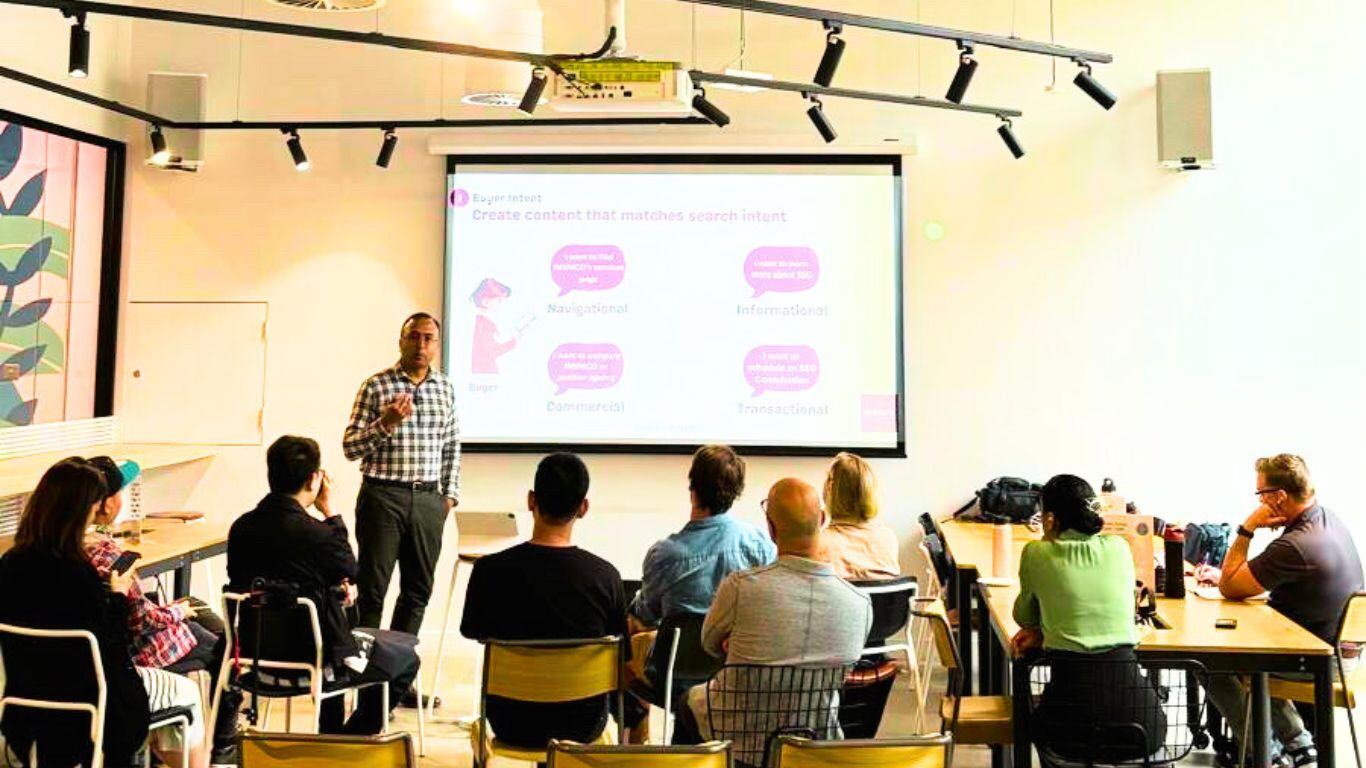Updated on: September 03, 2025
Search Engine Optimisation: What is it?
SEO is a set of activities that enables you (website owners) to increase your website visibility in search engines. SEO professionals optimise web pages and content for ranking higher in search engines.
SEO (Search Engine Optimisation) enables website owners to create and distribute high quality content that addresses buyer needs, goals and challenges. SEO (also known as Organic search) is a source of traffic acquisition for your business. Other traffic acquisition channels include paid search and social media marketing.
SEO activities include keyword research, content creation, on-page SEO, technical SEO and off-page SEO (which includes building backlinks). SEO activities improves your content ranking in search results.
Google shows your content higher in search results, if your content answers your buyer’s search query.
This blog explains ‘What is search engine optimisation?’.
Table of Contents
1. What is the importance of SEO?
2. How does Google search engine work?
4. Case Study - How to get the most out of B2B SEO?
1. What is the importance of SEO?
1. Increase brand awareness with prospective buyers - This is achieved by creating content that addresses a buyer’s need at different stages of the buyers journey.
2. Increase trust and credibility - The more your business website is referenced by credible sources, the higher your credibility. This will increase trust with your buyers.
3. Increase website traffic - If your web pages and blog posts are highly ranked for keywords used by buyers in their search queries, the greater the number of clicks to your website traffic.
4. Increase conversions - When they are ready to make a purchase, they will add your business to their consideration list. If you have the right call to actions (CTAs) at your respective landing pages, you will get a lead (i.e. a demo or a discovery call).
2. How does Google Search Engine work?
-
Crawl - Google uses crawlers or bots to crawl the World Wide Web to find new or updated content.
-
Index - Google makes sense of your page content and stores this information in its index.
-
Results - Google finds pages that best answers your user’s search query in terms of relevance and quality. Google ranks pages that have better relevance and quality, higher in search engine results pages (SERPs)
The below image shows the first page of google search results. One third of the page shows google ads a.k.a Google search ads. The remaining two thirds of the page shows organic search results. These results show up because the website owners have implemented Search Engine optimisation (SEO) for your website.
Search engine optimisation enables website owners to create and distribute high quality content that addresses the needs, goals and challenges of their buyer.
Paid Search ads enables you (advertisers) to display your website or landing page listing at the top of search results. Search engines like google use the pay per click advertising model. You only pay when your target audience clicks on your ad and views your web page or landing page.
Both SEO and Google Search Ads drives traffic to your website.
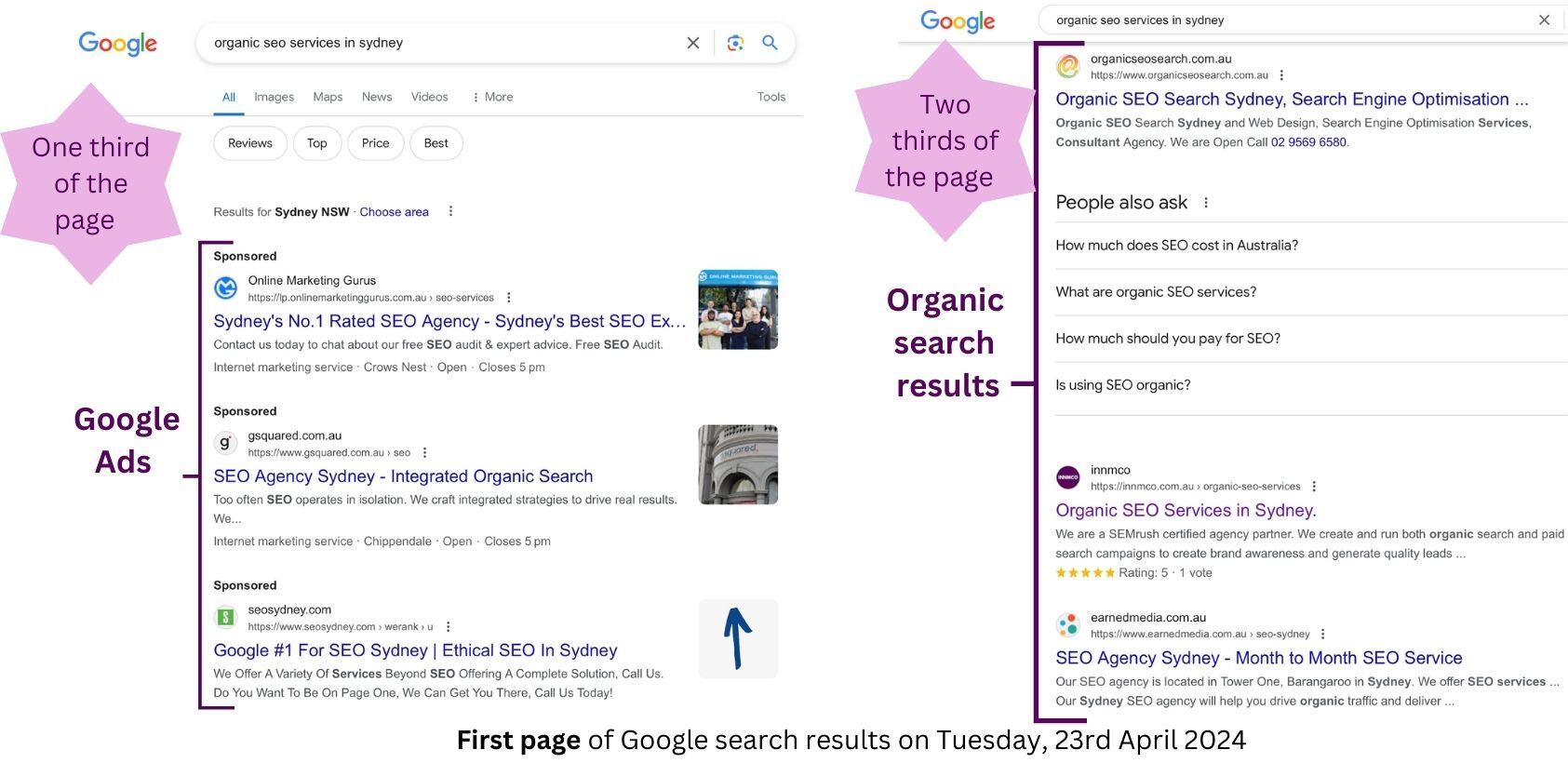
3. How to implement SEO?
Create relevant content
Relevance includes answering your user’s search intent.
There are 4 main types of search intent.
-
Navigational - When users want to find a specific page (e.g. INNMCO’s SEO service page)
-
Informational - When users want to learn more about a topic (e.g. A blog post on ‘What is SEO?’)
-
Commercial - When users want to do research before making a buying decision (e.g. INNMCO vs another digital marketing agency)
-
Transactional - When users want to complete a specific action, like schedule an SEO consultation.
Understanding search intent, starts with a deep understanding of your prospective buyer. Start with buyer research. Create content to address buyer needs, goals and challenges at different stages of your buyer’s journey.
Prototype and test your product messaging with your target market before you start to spend money on digital marketing. When a prospective buyer arrives at your business website, ask yourself:
1. What are the buyers seeking to learn when they arrive at your business website?
2. How do the buyers behave when they are at your business website?
Your buyer will better engage with your content when you find answers to the above questions. They will reward you with website clicks and leads for your business.
Create quality content
In this blog on SEO content writing, I talk about my personal experiences and opinions implementing on-page seo. I provide my own examples, which conveys to google and the reader that I have first hand experience in this topic.
Do the authors have the knowledge, qualifications and credentials required to give reliable information?
Expertise often overlaps with experience but they are not the same thing.
People want advice from accredited professionals.
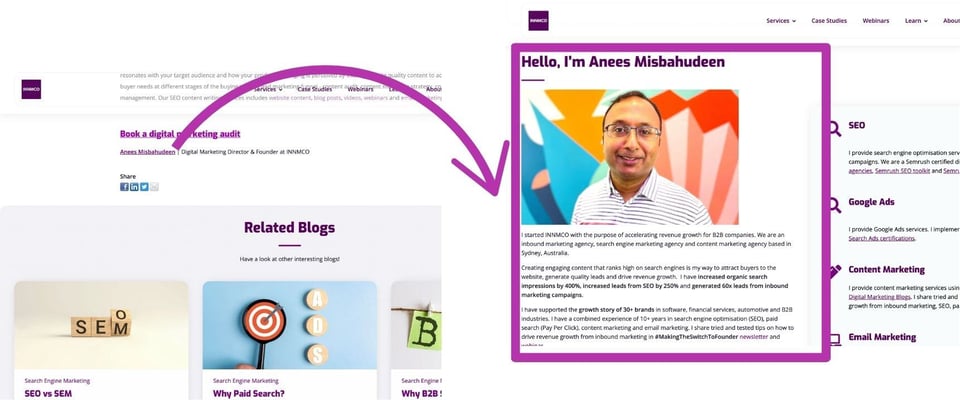
Do people look up to you as a leader in your industry? Do they accept you as a good source of information?
Google reviews the authoritativeness of the creator, the content and the website.
An article on customer relationship management (CRM) from Hubspot is authoritative because:
1. Hubspot blogs are a well known publication for all things marketing and CRM.
2. The authors are marketing professionals.
3. Once an article is published it gets updated on a regular basis, based on advancements in the field of CRM.
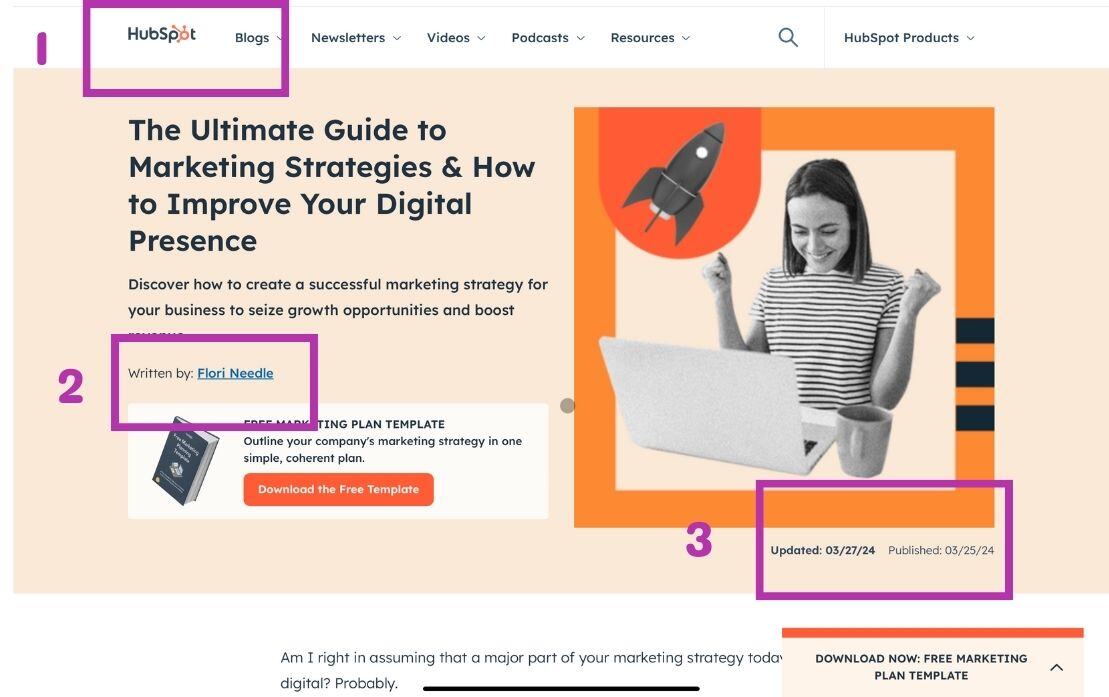
Evaluate and update your content often to ensure its accurate, relevant and informative.
In the below article, the author references another source ‘global market for influencer marketing’ while explaining influencer marketing in the below paragraphs.
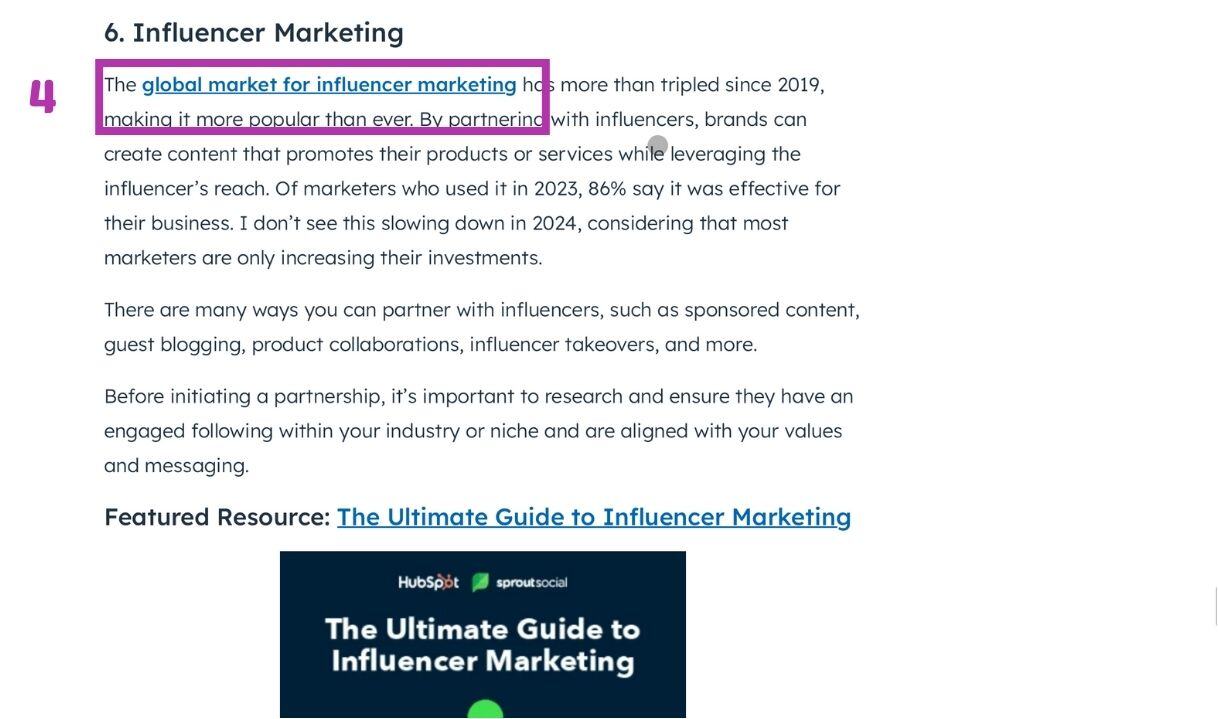
Create a good user experience
Build authority
Conclusion
Watch on-demand webinar - How to get the most out of B2B SEO?
Book Your Free SEO Audit!
Our clients have seen a 600% increase in leads in the first 6 months. Schedule a strategy call with Anees!
Written by
Anees Misbahudeen
Founder and Chief Growth Strategist | INNMCO
.png?width=200&height=125&name=Anees%20Misbahudeen%20-%20Company%20Profile%20(700%20%C3%97%20436%20px).png)
Anees is the Founder and Chief Growth Strategist at INNMCO. INNMCO is a Sydney‑based SEO, Google Ads and content marketing agency focused on driving growth for SaaS companies. Anees works with SaaS teams to improve visibility where it matters. This includes ranking at the top of search results and being referenced in AI‑driven answers. With over a decade of experience, he has supported 30+ brands across SaaS, finance, automotive and startups, delivering measurable growth.
Share
.png?width=75&height=75&name=INNMCO%20Company%20Logo%20-%202025%20(700%20x%20700%20px).png)
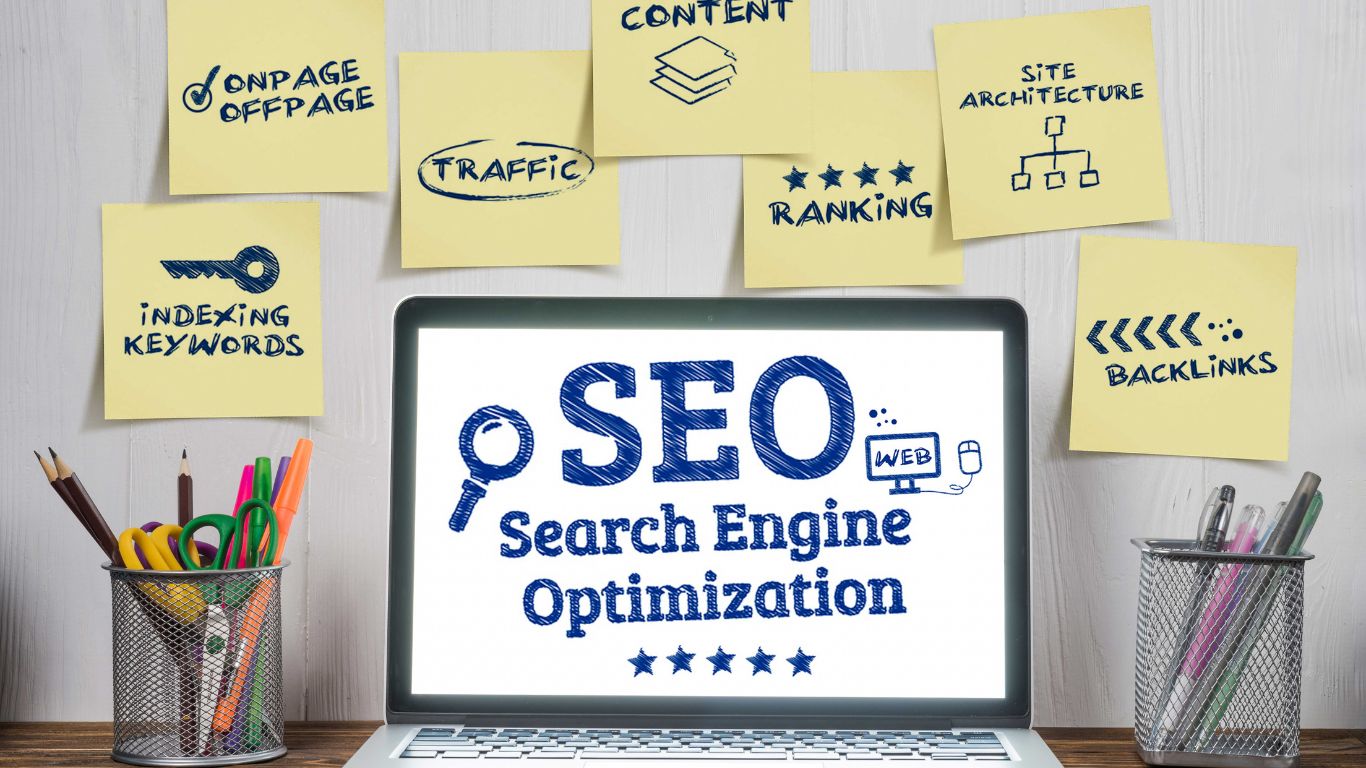
.png)

